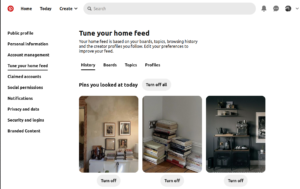So about 20 or more years ago I used to go down to the domain in Sydney to speakers corner on a Sunday afternoon and listen to the speakers. It is a tradition that you could go down there and preach, say, pretty much anything that was on your mind and that your thought was important. In a nut shell a lot of these people were extreme in their communications or in some cases probably mentally impaired. It was cheap entertainment and on occasion it was thought provoking but not often.
This also brings to mind the crazy grandpa, or way ward uncle that you’d only get in touch with once or twice a year and your parents would warn you “Just ignore him if he gets on to such and such a topic” (usually political, social or racist).
The problem is we now have the internet, and I see a lot of that wacky energy being piped into social media.
This is a problem, a very real problem because hundreds of moderators of Facebook are suffering from PTSD. Of course Facebook didn’t directly hire these people, no that work was out sourced to a secondary company in a 3rd world country – and needles to say there is a lot of delay, deny and defend behavior going on from both Zuck and his mates who he out sourced that work to.
Now just bare with me for a little longer when I consider Steve Bannon’s statement about communications and social control.
Steve Bannon’s “flood the zone with shit” strategy. Lie constantly. Lie with audacity. Lie about everything large and small, and declare that truth is subjective and partisan.
So what’s this got to do with AI you might ask? Well much of social media has been used as a training database for AI!
Jung talked about the shadow – the part of the human being that was dysfunctional that often caused trouble and was problematic. I have a feeling if an AGI were trained on the wrong data,and say Steve Bannon’s strategy were given as a maxim – it is possible it could morph into something that makes everyone’s Christmas dinner very uncomfortable, If not impossible!
We need to head the warnings of Geoffrey Hinton, father of AI who has already mentioned that all of the following should be considered…. Manipulation,Disinformation,Autonomous weapons and of course Superintelligence.
Seriously…. I am moving to the country this year.
Links
PTSD in Kenyan Facebook moderators
https://www.theguardian.com/media/2024/dec/18/kenya-facebook-moderators-sue-after-diagnoses-of-severe-ptsd
This infamous Steve Bannon quote is key to understanding America’s crazy politics
https://edition.cnn.com/2021/11/16/media/steve-bannon-reliable-sources/index.html



